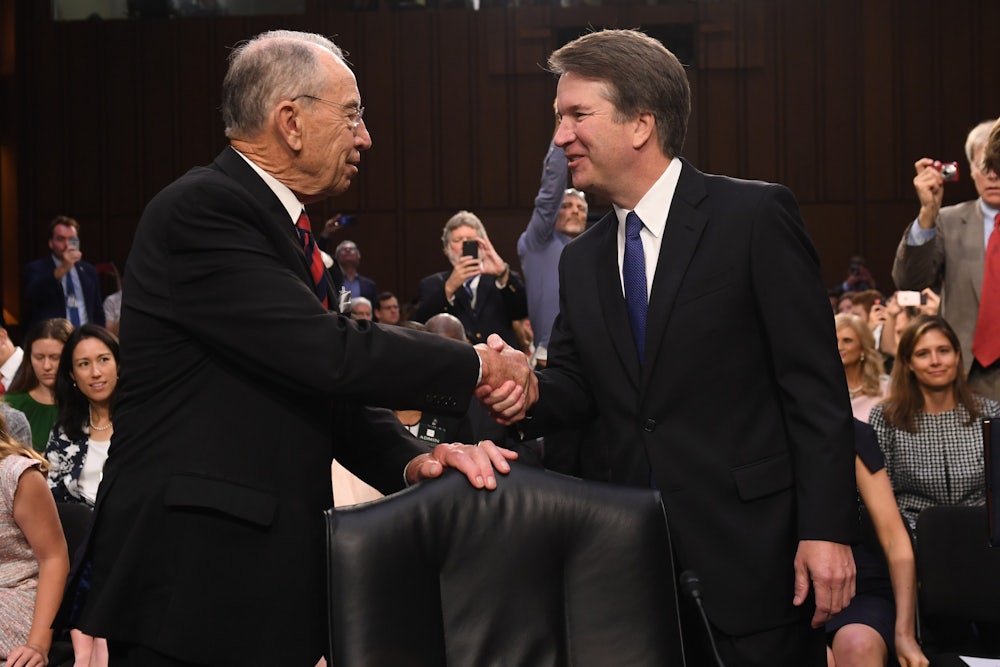Christine Blasey Ford, who has nearly capsized the Supreme Court nomination of Brett Kavanaugh by accusing him of sexually assaulting her when they were both teenagers, is locking horns with the Republicans in the Senate Judiciary Committee over how her claims should be evaluated. Via her lawyers, Dr. Blasey (to use her professional name) is insisting that the FBI investigate her story before she testifies at the Senate hearings. Senate Republicans, led by Chuck Grassley, chairman of the Judiciary Committee chairman, want a much more bare-bone approach: hearings where both Dr. Blasey and Judge Kavanaugh testify but no one else does.
“Dr. Ford’s testimony would reflect her personal knowledge and memory of events,” Grassley noted in a statement. “Nothing the F.B.I. or any other investigator does would have any bearing on what Dr. Ford tells the committee, so there is no reason for any further delay.”
Just in — @ChuckGrassley response to Ford lawyer’s letter pic.twitter.com/IOT56cAe8U
— Seung Min Kim (@seungminkim) September 19, 2018
In essence, the Republicans want to turn the hearings into a strict she-said-he-said affair, with nothing more on offer than competing claims from two parties. This is the best path the Republicans have for salvaging the nomination, since it would mean that many neutral individuals could conclude there is no way to know the truth of Dr. Blasey’s contested claims.
What is notable is that Dr. Blasey is trying to bring more evidence to the table. As William Saletan of Slate notes, this matter doesn’t have to be one of rival testimony since there are factors that can be examined by an outside investigator, such as witnesses (notably Kavanaugh’s high school friend Mark Judge and two other people Dr. Blasey says were at the party). Judge denies the allegations but hasn’t testified under oath about them.
The Republicans are hostile to an evidence-based investigation because it would both delay the nomination (which they hope to wrap up well before the mid-term elections) and it might turn up unpleasant surprises. But these are political objections which have little to do with giving Dr. Blasey a fair hearing. She has the superior argument in noting that a narrow hearing where only she and Judge Kavanaugh speak is not the best way to establish the truth of this matter.
